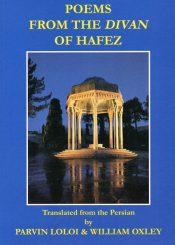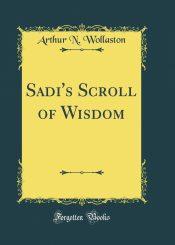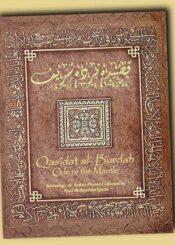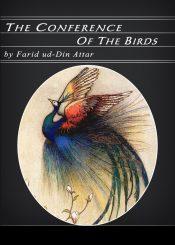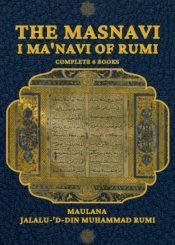Qasidat al-Burdah (The Poem of the Mantle)
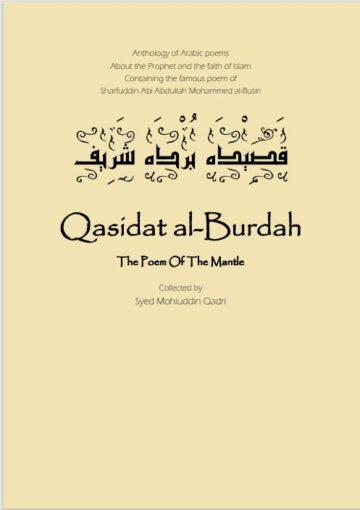
Qasidat al-Burdah (The Poem of the Mantle)
Author :
Publication year :
2008
Publisher :
Publish number :
First Edition
Number of volumes :
1
(0 Votes)

(0 Votes)
Qasidat al-Burdah (The Poem of the Mantle)
An Analogy of Arabic and Urdu Poems The main objective of bringing this Anthology of Arabic and Urdu poems on Islam and its illustrious Preacher Sallallahu Alayhi Wasallam, is to place them within the reach of such English-speaking people as take a keen interest in the faith of Islam and its propagation, so as to enable them to see how Arabic poetry represents and depicts the character of the noble Founder of Islam. With this end in view an English translation, simple and faithful to the original is given, with footnotes explaining in full all allusions to historical facts and events in the life of the holy Prophet Sallallahu Alayhi Wasallam, and all references to the Quran and the Traditions. At the same time, the interests of such readers as read the poem with a view to study the Arabic language for the sake of study has not been neglected, and in order to effect this end a literal version is given in the notes where the idiom and the construction of the English language make it imperative to make departure from a close version. After making all due allowances for the play of imagination, on which Poetry mainly depends for its excellence, and in which the Eastern poets indulge very freely, it will be easy enough to see that the representations and the pictures in these poems possess the rare feature of not exceeding the bounds of propriety and reason. While the Prophet Sallallahu Alayhi Wasallam is represented as the best and highest model of human perfection, short only of divinity, he is admitted to be, after all, but a man and a servant of God. All representations are well borne out by historical facts and are sustainable by reason, at least from the point of view of Islamic theology. Thus in fact poetry here, unable to hold its own against the grandeur and sublimity of the subject, gives way to reality and facts and dwindles into a simple narrative. The book contains one of the noblest poems in the Arabic literature of the Post-Islamic time and one that gives a very faithful picture of the Prophet Sallallahu Alayhi Wasallam. It has; besides, the rare advantage that its images, similes and sentiments are such as will not fail to command the appreciation of Western readers of the present time. The book also contains such poems as were composed and recited in the defence and the support of Islam, at its very outset, by such persons as were well known for their high position, integrity of character, vast knowledge and sound judgement. They go far to prove clearly that Islam was never based on violence, force or use of the sword, but was only a form of religion founded on solid reason and pure morality, and quite in unison with the doctrines of God, previously preached by Abraham, Moses and Jesus, and merely remodelled now according to the wants of the time. Thus they give a strong rebuff to those Orientalists who have so assiduously made futile attempts to diminish the merits of the faith of Islam by their misleading representations.
